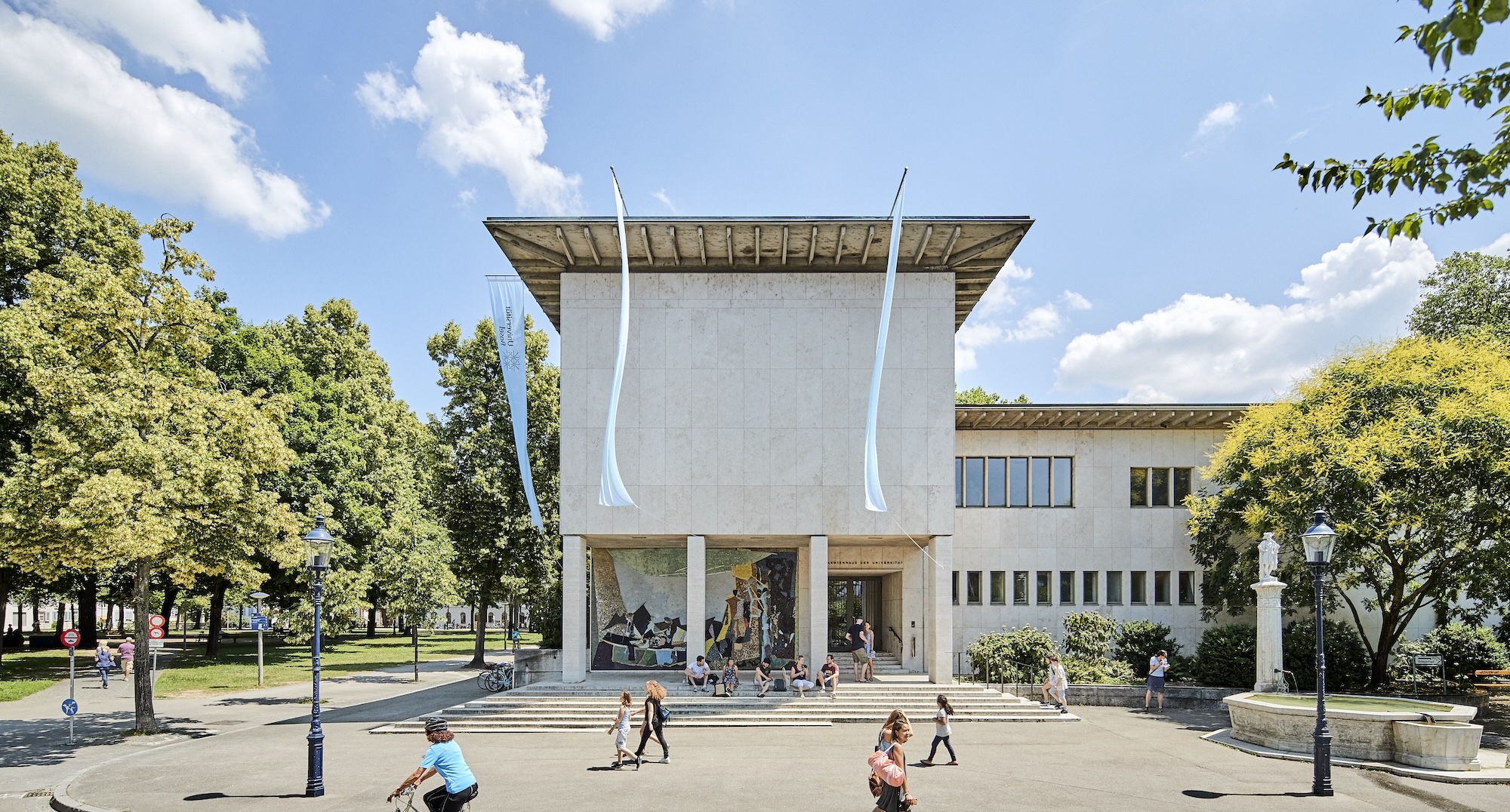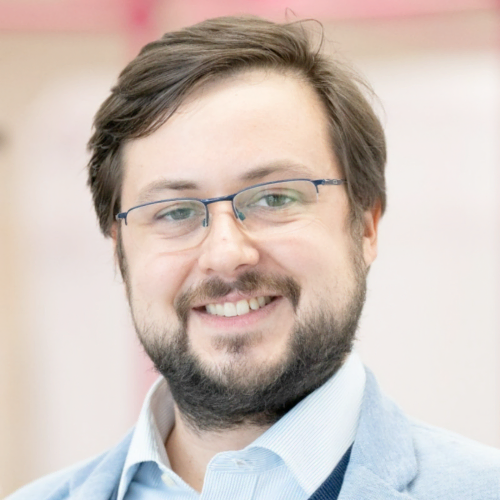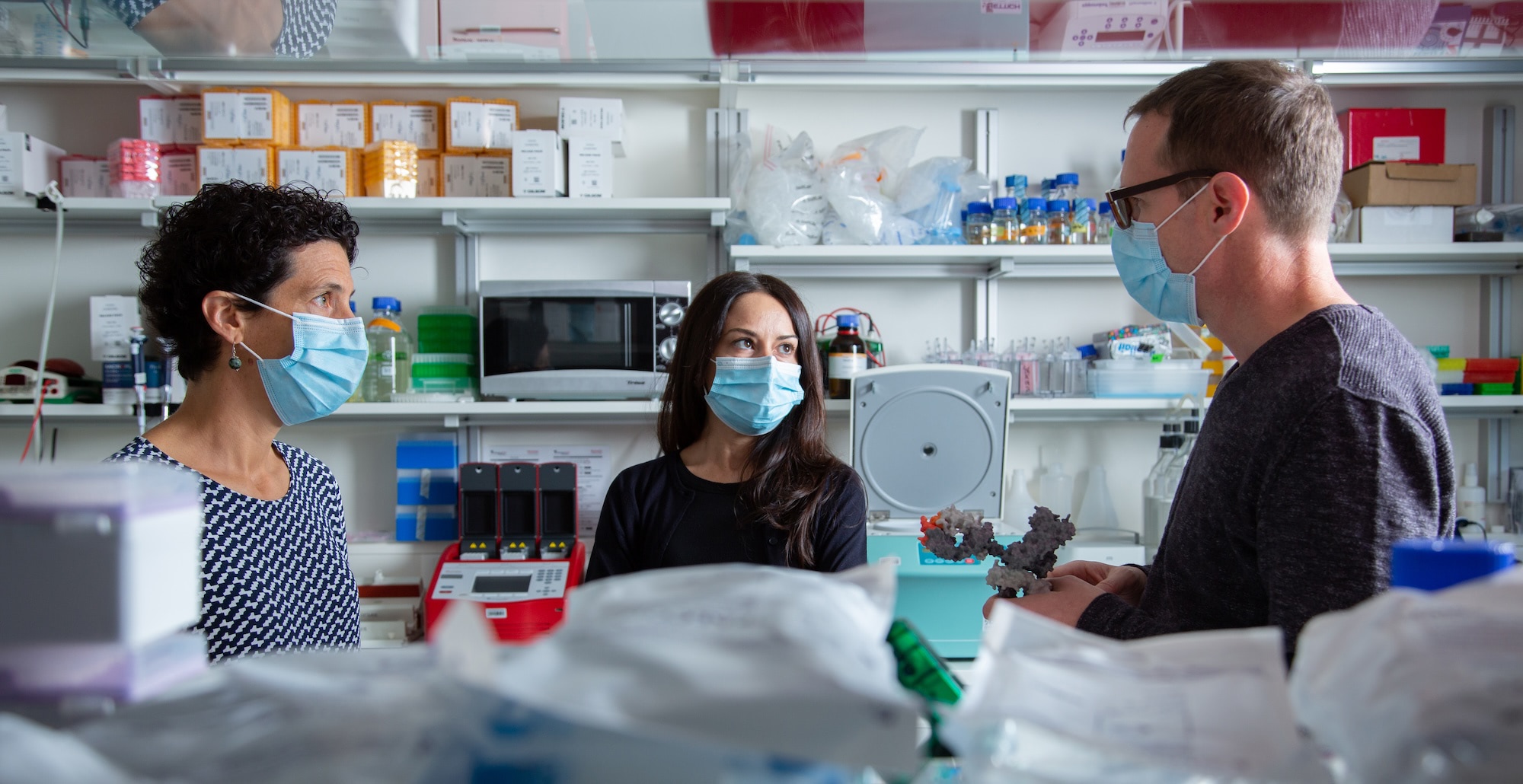Basel has quietly built a life sciences ecosystem that’s becoming hard to ignore.

University of Basel’s central building, Kollegienhaus. Photo courtesy of the university/Mark Niedermann.
There is a reason you’ve not heard much about the University of Basel’s innovation ecosystem and it isn’t the lack of inventions coming out of Switzerland’s oldest university, founded in 1460. It is a culture of deep understatement that permeates the city — it is not unusual to see billionaires cycling to the bakery for their morning pastries or the chief executive of a multinational pharmaceutical company riding the tram.
People here prefer to live under the radar, says Alessandro Mazzetti, the team lead for innovation collaborations at the university. It makes Basel a great place to live but a challenge to promote research commercialisation activities.
Basel’s strength is life sciences — it is the home of more than 800 companies in the sector, including well-known names like Roche, Novartis, Actelion (acquired by Johnson & Johnson for $30bn in 2018), Idorsia (spun out of Actelion post-acquisition), Lonza and the European headquarters of Moderna. Out of the canton’s 200,000 inhabitants, more than 32,500 work in the sector, which evolved out of historic industries focused on textiles and dyeing.
“Now, pharmaceutical firms are thinking about the next revolution, moving from new pills to AI and supercomputing and organoids.”
“Now, pharmaceutical firms are thinking about the next revolution, moving from new pills to AI and supercomputing and organoids,” Mazzetti says.
The university is at the heart of trying to tap into these opportunities more effectively through the Innovation Office, which was set up seven years ago. The team has managed to increase the number of spinouts coming out of the University of Basel from just one to three a year to somewhere between 10 and 15.
Don’t call it a tech transfer office
The Innovation Office is not a tech transfer office — that function is handled by Unitectra, which supports scientists on the path from invention to patent and with research contracts and agreements. But while Unitectra is owned by the universities of Basel, Bern and Zurich, the organisation doesn’t create spinouts per se, build industry partnerships or provide entrepreneurship training.

“The University of Basel was lacking a structured support around that,” Mazzetti explains. “That’s where we step in with a number of activities.” Creating an innovation office from scratch so late in the game compared to international peers presented a unique opportunity: Basel could learn from the best in the world.
The university established the Innovation Office in 2017 after Prof Andrea Schenker-Wicki was appointed as the institution’s president and instigated a culture shift that pushed Basel towards getting more inventions into the market. Outside of pioneers ETH Zurich and EPFL, it makes Basel’s Innovation Office the oldest among its Swiss peers, Mazzetti highlights.
It meant challenging the status quo — while everyone expected them to benchmark against local peers like Zurich, the Basel team looked internationally instead, to Imperial College London and the University of Oxford. Prof Schenker-Wicki herself visited the Massachusetts Institute of Technology. The pandemic put a temporary pause on these benchmarking trips but since lockdowns ended, the team have also visited institutions in Belgium and the Netherlands, as well as Stanford University and the University of California, San Francisco and Berkeley.
There were fundamental questions to be answered, from a high level — what are the conditions for startups to come out of the university? — to the minutiae — how much equity does the university take?
The university landed on the US model: it takes between 4% and 6% in equity and negotiates royalty payments with the startup. The spinout pays no upfront fee for the licence, and the university does not take a board position.
The lack of any upfront capital requirements is in part because setting up a company in Switzerland is so expensive already and the university did not want to add to the burden. The incorporation of an Aktiengesellschaft — the Swiss version of a limited company — costs CHF100,000 ($113,000). “It’s a huge barrier,” Mazzetti laments. Salaries are also high so a small spinout of two or three people will need around CHF400,000 to cover basic outgoings for the first year.
Even so, Mazzetti believes that the university spinout rate could increase even further. “We are at 10 to 15 per year now and we believe that we are still halfway to our potential,” he says.
These numbers need to be put in the context of the university’s size: the University of Basel is a relatively small institution with just over 13,000 students. However, it has the highest ratio of PhD students in the country with about 3,000. “There is not a lot of student entrepreneurship yet,” Mazzetti says, though the university is keen to boost this activity. But at the PhD, postdoc and faculty level, there is a lot of activity towards getting discoveries out of labs, he adds.
The Innovation Office handles both the spinouts and industry relations. Surprisingly, about half of the university-industry collaborations are executed with startups and scale-ups rather than large pharmaceutical firms. “They try to get new intellectual property and collaborations with academic labs, whether it was their originating one, or a different one that’s complementary,” Mazzetti says.
When it comes to human capital, Mazzetti and his team found support from the public innovation agency Innosuisse, which funds a startup coaching programme connecting mentors with young companies. Basel has suffered from a shortage of local mentors, Mazzetti admits, but he is keen to build this out. The university is not looking to pay these mentors itself — it would create the wrong incentive, Mazzetti argues. Instead, startups can negotiate an agreement with serial entrepreneurs for a stake in the company (it can, but doesn’t have to be, equity).
For Basel, it’s personal

One area that the Innovation Office would like to improve is greater collaboration with Basel’s big, local pharmaceutical companies. Roche and Novartis do publish a lot of joint papers with the university, but there’s less commercial collaboration than Mazzetti would like.
“In terms of generated IP, whether it’s our own or shared with industry, the neighbouring region of France is doing much better,” says Mazzetti.
Mazzetti notes that Roche is trying to engage more with the local ecosystem, but both companies tend to focus on the US. “It is hard to build a consistent relation or framework agreement that works,” Mazzetti says. There are historic partnerships but changes in personnel, corporate strategy and focus areas have made continuity a challenge, he adds.
Ironically, it is Silicon Valley investors who have recently started looking to Basel. An example is Versant Ventures and the ecosystem is building a reputation for oncology and rare diseases, where high-net-worth individuals and foundations are keen to provide significant grant funding — think $2m to $3m — to help get startups off the ground. Local angel investors that do make equity investments have a uniquely Swiss benefit: there is no capital gains tax on private financial returns in the country.
One of the positives in Basel is that the institutional investors that are active in the city are generally prepared to deploy significant capital at an early stage. For example, Cimeio Therapeutics, an immunotherapy developer spun out of Basel, picked up $50m in series A financing from Versant Ventures in 2022.
Startups in Basel tend to raise more, on average, than those in neighbouring regions in France and Germany, Mazzetti says, and that’s created a flywheel effect where companies relocate to the city to raise the kind of cash — in amounts and from relevant backers — that will make a jump into the US market possible.
No Horizon Europe, (almost) no problem
One of the big challenges for Basel is that Switzerland is not currently affiliated with Horizon Europe, the €95.5bn collaborative research programme created by the EU but active globally (Canada, Morocco and New Zealand are some of its affiliate members).
It does get backing from Innosuisse, which runs grant programmes to get discoveries from the lab into the market, offering instruments to stimulate knowledge transfer. For example, a company only needs to put up 40% to 60% of its own cost, and 5% of the research partner’s cost — the rest is paid by Innosuisse.
It’s replacing some of the Horizon Europe model, but the EU programme isn’t really about the money, says Mazzetti. Being part of Horizon Europe is about international collaboration and prestige. “Yes, replacement instruments are great,” Mazzetti says, “but at the same time the competition is not the same because it’s internal competition versus international competition.”
The Innovation Office tries to compensate by working collaboratively with the other innovation offices, and the Innovation Office team has been working on a countrywide alliance that could share best practices. Bern, Ticino and Geneva all do great work, he remarks, but many initiatives continue to focus on the classic aspects of patenting and licensing only.
“The governments of the region want to push for collaboration.”
Alessandro Mazzetti
The university would also like to build a tri-national hub for life sciences, which includes the Biocampus, an innovation cluster that spans the Upper Rhine Valley across Switzerland, France and Germany. The hope is that it will allow the region to have “the critical mass finally to attract much more international investment to the region,” Mazzetti says.
“On the regional level, it works very well with the governments of our group of cantons, the region Baden-Württemberg in Germany and the Région Grand-Est — Alsace — in France,” Mazzetti says. “It’s a strong exchange. The presidents of all the universities are aligned and the governments of the region want to push for collaboration.”
And it isn’t just regional collaboration. “We have an acceleration programme for South Korean startups in Switzerland,” Mazzetti explains. Two cohorts of no more than five early-stage startups come to Switzerland once a year for up to three months and are offered a tailor-made programme to give them access to local industry, researchers and investors. In turn, Swiss startups can access South Korea, focusing on more mature companies in areas like quantum computing and neuroscience.
Acting like a startup
Basel’s Innovation Office itself gets about a third of its funding from the university and the remainder from external parties, meaning the team has to keep fundraising much like a startup — be that competitive government grants, industry or cross-border initiatives. This reality has pros and cons, Mazzetti argues. If the office is planning to launch a specific programme but loses the bid on a grant, the programme simply will not happen or will have to be funded in another way and potentially be much smaller in scale.
On the other hand, it means the team truly understands the reality of startup life and fundraising can act as a sanity check on whether something is a good idea.
Having to work hard for its funding is not stopping the Innovation Office from thinking big: there are plans to expand its fellowship programme, called the Propelling Grant, from CHF50,000 to CHF250,000 per project, and possibly set up a VC-like instrument to get spinouts off the ground much faster.
Help shape the future

These Innovation Office efforts aren’t happening in isolation. Several other initiatives have been taking off in the city. Some of the University of Basel spinouts go on to join the BaseLaunch incubator, which is backed by a number of multinational pharma companies. BaseLaunch has built a portfolio of 22 companies, including the aforementioned Cimeio, and these startups have raised more than $600m from investors like Novartis Venture Fund and Novo Holdings since 2018. BaseLaunch has achieved multiple exits, including the up-to-$509m purchase of intracellular drug delivery platform T3 Pharma, another spinout of the University of Basel, by Boehringer Ingelheim in November last year.
The city may have struggled in the past to tell its story, but it is increasingly becoming a place everyone from founders to investors needs to know.

Thierry Heles
Thierry Heles is the editor of Global University Venturing, host of the Beyond the Breakthrough interview podcast and responsible for the monthly GUV Gazette (sign up here for free).








